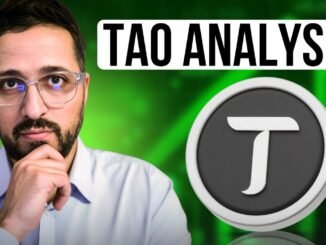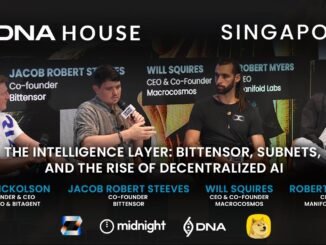
In what he called his most important interview of the year, Robert Scoble sat down with Ala Shaabana, co-founder of Bittensor. Ala broke down how Bittensor works and why it stands as a pioneer in decentralized AI computing.
Watch the video below:
Here’s the transcript:
Q: Who is speaking?
Ala Shaabana, co-founder of Bittensor. He has a PhD in AI, worked in distributed systems at VMware and Instacart, and co-founded Bittensor with Jacob Steeves in 2019.
Q: What is Bittensor in simple terms?
It’s a decentralized network where anyone can contribute compute, data, or AI models and get rewarded. Think of it as a global, open marketplace for intelligence—similar to how the web broke free from AOL’s walled garden.
Q: Why does this matter?
AI today is locked inside giant corporations (OpenAI, Google, Anthropic). Bittensor makes intelligence open-source, peer-to-peer, and collectively owned—ensuring no single entity monopolizes AI.
Q: How does it help developers?
Instead of needing millions to train models, even a developer with a GPU in their garage can plug into the network, compete fairly, and earn based on the quality of their work.
Q: What’s the difference vs. centralized platforms like Facebook or X?
Centralized algorithms decide what billions of people see. On Bittensor, many models compete openly, with transparency in how decisions are made—removing hidden biases or backdoors.
Q: Why is open source critical?
Open source lets anyone audit, improve, or fork code. This ensures AI evolves faster, more fairly, and more safely than closed systems controlled by a few executives or governments.
Q: How does Bittensor address AI safety fears?
Validators can test and score models for safety, bias, or malicious behavior. The system naturally rewards honesty and penalizes unsafe outputs—making decentralized AI arguably safer than centralized “black box” models.
Q: Could this lead to AGI?
Yes—but not as one giant model. More likely, it will emerge from many small, specialized intelligences working together, like brain modules. Decentralization enables faster innovation than secretive corporate labs.
Q: What’s an example of real-world use?
Subnets like BitMind are already building decentralized tools, e.g., detecting deepfakes directly in your browser—public goods that centralized firms often won’t prioritize.




Be the first to comment